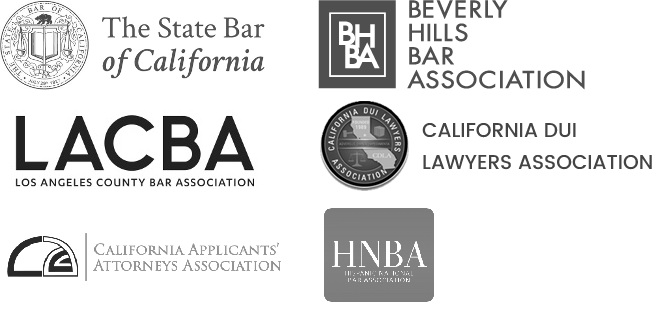Back Injury at Work
Which Back Injuries At Work Are Covered By Workers’ Compensation in California?
Injured at work? Claim denied or delayed?
Back injuries are one of the most common workplace injuries across all industries. From lifting heavy boxes to sitting at a desk for long hours, workers face daily risks that can lead to painful back problems. These injuries can range from minor muscle strains to serious conditions like herniated discs that require surgery.
Workers who suffer back injuries on the job have the right to receive medical treatment and wage replacement benefits through workers’ compensation insurance. The process involves reporting the injury quickly, getting proper medical care, and filing the necessary paperwork with your employer’s insurance company. However, many workers don’t know their rights or struggle to get the benefits they deserve.
Understanding how workers’ compensation works for back injuries can make the difference between getting proper care and being stuck with medical bills. From proving your injury happened at work to dealing with insurance company delays, there are important steps every worker should know. The team at LG Law Center helps workers in Ontario, California, and the surrounding area navigate these complex claims and protect their rights throughout the process.
If you suffered a back injury at work or have ongoing back pain due to your job, LG Law Center can help you with your workers’ comp claim. Contact them today!
Understanding Back Injuries in Workers’ Compensation
Back injuries are among the most common workplace injuries that lead to workers’ compensation claims. These injuries can range from simple muscle strains to serious spinal damage that requires surgery.
Common Types of Work-Related Back Injuries
Lumbar strains and sprains are the most frequent back injuries workers face. These happen when muscles or ligaments in the lower back get stretched or torn. Workers often experience these injuries when lifting heavy objects or making sudden movements.
Herniated discs occur when the soft cushions between spine bones get damaged. The disc material can push out and press on nerves. This causes sharp pain that can travel down the leg.
Muscle spasms happen when back muscles tighten up suddenly. These can be very painful and make it hard to move normally.
Compression fractures are breaks in the spine bones. These are more serious injuries that often happen from falls or getting hit by heavy objects.
Some workers develop chronic pain conditions over time. These happen from doing the same motions over and over or from poor working positions.
How Back Injuries Happen on the Job
Heavy lifting causes many back injuries at work. Workers get hurt when they lift boxes, equipment, or materials that are too heavy. Poor lifting form makes the problem worse.
Repetitive motions can damage the back over time. Workers who bend, twist, or reach repeatedly may develop injuries slowly.
Slips and falls often cause back injuries. Workers can hurt their backs when they fall on wet floors, uneven surfaces, or from heights.
Vehicle accidents injure workers who drive for their jobs. Truck drivers and delivery workers face higher risks of back injuries from crashes.
Being struck by objects can damage the back. Falling tools, machinery, or materials can cause serious spine injuries.
Poor workplace design also leads to injuries. Workers may hurt their backs when workstations are too high or low.
Symptoms to Watch For
Pain is the most common sign of a back injury. The pain might be sharp and sudden or dull and constant. Some workers feel pain right away, while others notice it hours or days later.
Stiffness makes it hard to move normally. Workers may have trouble bending over, standing up straight, or turning their bodies.
Muscle spasms cause the back muscles to tighten up without control. These can be very painful and may come and go.
Numbness or tingling in the legs or feet can mean nerve damage. This symptom should be checked by a doctor right away.
Weakness in the legs or trouble walking may signal a serious injury. Workers should seek medical care immediately if they have these symptoms.
Some workers also report shooting pain that travels from the back down to the legs. This often means a disc problem that needs medical attention.
Filing a Workers’ Compensation Claim for Back Injuries
Workers must report their back injury quickly and fill out specific forms to start the claim process. California has strict deadlines that can affect benefit rights if missed.
Reporting Your Injury
Workers must tell their employer about a back injury right away. The best practice is to report the injury immediately after it happens or as soon as possible.
Employees should report the injury to their direct supervisor or manager. If the supervisor is not available, workers can report to any manager or the human resources department.
The report should be made in writing when possible. Workers should keep a copy of any written report for their records.
Important details to include:
- Date and time the injury occurred
- Location where the injury happened
- How the injury occurred
- Body parts affected
- Names of any witnesses
Workers should not wait to report the injury. Even if the pain seems minor at first, back injuries can get worse over time.
If medical care is needed right away, workers should call 911 or go to an emergency room. They can report the injury to their employer later.
Completing the Necessary Forms
Employers must give workers a claim form within one working day of learning about the injury. This form starts the official workers’ compensation process.
The claim form asks for basic information about the worker and the injury. Workers should fill out every section completely and honestly.
Key information needed on the form:
- Personal information (name, address, Social Security number)
- Employment details
- Injury description
- Medical treatment received
Workers should make copies of the completed form before returning it. One copy goes to the employer and one copy should be kept for personal records.
The form should be returned to the employer or their insurance company as soon as possible. Workers can mail or hand-deliver the completed form.
If workers need help filling out the form, they can ask their employer or contact a workers’ compensation attorney for assistance.
Deadlines for Filing in California
California law requires workers to report injuries within 30 days of the incident. Missing this deadline can hurt the worker’s right to receive benefits.
The 30-day rule starts from when the injury happened or when the worker knew the injury was work-related. For back injuries that develop slowly, the deadline begins when the worker realizes the connection to work.
Critical time limits:
- Report injury: Within 30 days
- File claim form: No specific deadline, but sooner is better
- Seek medical care: As soon as needed
Workers who miss the 30-day reporting deadline may still be able to get benefits in some cases. The employer must prove they were harmed by the late report.
Emergency medical situations are always an exception. Workers should get medical care first and report the injury as soon as they can.
LG Law Center helps workers understand these deadlines and protect their rights. Attorney Luis E. Gonzalez knows California workers’ compensation law and can guide workers through the process.
Essential Workers’ Compensation Benefits for Back Injuries
Workers who suffer back injuries at work can receive medical care coverage, temporary payments while they recover, and permanent settlements for lasting damage. These benefits help injured workers get proper treatment and replace lost income during their recovery period.
Medical Treatment Coverage
Workers’ compensation covers all necessary medical treatment for work-related back injuries. This includes doctor visits, hospital stays, and emergency room care.
The coverage pays for diagnostic tests like X-rays, MRIs, and CT scans. These tests help doctors find the exact problem with the injured worker’s back.
Treatment options covered include:
- Physical therapy sessions
- Prescription medications
- Surgical procedures
- Chiropractic care
- Specialist consultations
Workers don’t pay out-of-pocket costs for approved medical care. The insurance company pays doctors and hospitals directly.
The injured worker must see doctors approved by the workers’ compensation system. Getting treatment from unapproved doctors may result in denied claims.
Temporary Disability Payments
Temporary disability payments replace part of a worker’s lost wages while they recover. These payments typically equal about two-thirds of the worker’s average weekly wage.
Workers receive temporary total disability when they cannot work at all. They get temporary partial disability when they can work limited hours or do lighter duties.
The payments continue until the doctor says the worker can return to full duty. They also stop when the injury reaches maximum medical improvement.
Payment requirements include:
- Missing more than three days of work
- Having a valid medical report
- Following all treatment plans
Workers must attend all medical appointments to keep receiving payments. Missing appointments without good reason can stop the benefits.
Permanent Disability Settlements
Permanent disability settlements compensate workers for lasting damage from their back injury. The settlement amount depends on how much the injury affects the worker’s ability to earn money.
Doctors give permanent disability ratings based on medical guidelines. Higher ratings mean larger settlements.
Average settlements for back injuries range from $20,000 to $75,000. Severe spinal cord injuries often result in much higher amounts.
Factors affecting settlement amounts:
- Age of the injured worker
- Type of work they performed
- Severity of the injury
- Need for future medical care
The settlement becomes final once both sides agree to the amount. Workers should understand that accepting a settlement usually ends their right to future benefits for that injury.
Proving Your Back Injury is Work-Related
To win workers’ compensation benefits, you must show that your back injury happened because of your job. This means collecting medical records and getting witness statements to support your case, especially when dealing with pre-existing back problems.
Gathering Medical Evidence
Medical documentation forms the foundation of your workers’ compensation claim. You need to see a doctor right away after your injury occurs.
The doctor’s report must clearly state that your back injury is work-related. This medical opinion carries significant weight with insurance companies and judges.
Key medical evidence includes:
- Initial injury report from your first doctor visit
- X-rays, MRIs, or CT scans showing the damage
- Treatment records from all medical appointments
- Doctor’s statement linking the injury to your work duties
Keep copies of all medical records. Insurance companies often try to claim back injuries are not work-related.
Your doctor should document exactly how your job caused or worsened your back condition. The more detailed the medical records, the stronger your case becomes.
Ask your doctor to be specific about work restrictions. These limitations help prove the severity of your injury and support your claim for benefits.
The Importance of Witness Statements
Coworkers who saw your injury happen can provide powerful evidence for your claim. Their statements help confirm that your back injury occurred at work.
Get witness statements as soon as possible after your injury. People’s memories fade quickly, and coworkers may become reluctant to help later.
Effective witness statements should include:
- The exact date and time of the incident
- What the witness saw happen
- Your immediate reaction to the injury
- The work task you were performing
Witnesses can also describe unsafe working conditions that led to your injury. This information strengthens your case against the employer’s insurance company.
Even if no one saw the actual moment of injury, coworkers can testify about your pain complaints immediately after the incident occurred.
Write down the names and contact information of all potential witnesses. LG Law Center can help you properly collect these important statements.
Dealing with Pre-Existing Conditions
Having a previous back problem does not automatically disqualify you from workers’ compensation benefits. California law protects workers even when they have pre-existing conditions.
The key is proving that your job made your back condition worse. Your work does not need to be the only cause of your current pain.
Important factors for pre-existing conditions:
- Medical records showing your condition before the work injury
- Documentation of how work activities worsened your symptoms
- Comparison of pain levels before and after the work incident
Insurance companies frequently claim that back injuries are pre-existing rather than work-related. This is a common tactic to deny valid claims.
Your doctor must explain how your job duties aggravated your existing back condition. This medical opinion is crucial for winning your case.
Be honest about your medical history with your doctor and attorney. Hiding previous injuries usually hurts your case more than helping it.
Challenges You May Face with Your Claim
Back injury workers’ compensation claims often face specific hurdles that can delay or deny benefits. Insurance companies may question the severity of injuries or dispute medical treatment choices, while independent medical exams can complicate the process.
Claim Denials and Delays
Insurance companies frequently deny back injury claims because these injuries are hard to prove. They may argue the injury happened outside of work or question if it’s really work-related.
Common reasons for denials include:
- Lack of immediate medical treatment
- No witnesses to the injury
- Pre-existing back conditions
- Missing or incomplete paperwork
Delays happen when insurance companies need more time to investigate. They might request additional medical records or interview coworkers. These delays can last weeks or months.
Workers often struggle with denied claims because they don’t understand their rights. The insurance company may offer a settlement that’s too low. Without proper documentation, it becomes difficult to prove the injury occurred at work.
Filing deadlines are strict in California. Missing these deadlines can result in losing benefits entirely. Workers must report injuries quickly and follow all required steps.
Disputes Over Medical Treatment
Insurance companies control which doctors workers can see for their injuries. They may refuse to approve certain treatments or specialists that workers need.
Treatment disputes often involve:
- Physical therapy sessions
- MRI or other imaging tests
- Pain medication prescriptions
- Surgery recommendations
The insurance company’s doctor might say a worker needs less treatment than their personal doctor recommends. This creates conflicts about what care is necessary.
Workers may get stuck with medical bills when insurance companies deny treatment requests. They cannot always choose their preferred doctor or hospital.
Some insurance companies delay approving treatment to save money. This can make injuries worse and slow down recovery time. Workers may need to file formal requests to get the medical care they need.
Independent Medical Examinations
Insurance companies often require workers to see their own doctors for independent medical examinations (IMEs). These doctors work for the insurance company, not the injured worker.
The IME doctor may disagree with the worker’s treating physician about the injury’s severity. They might say the worker can return to work sooner than expected.
IME doctors typically evaluate:
- Range of motion in the back
- Pain levels and limitations
- Ability to perform job duties
- Need for ongoing treatment
Workers must attend these appointments or risk losing their benefits. The examination results can affect the entire claim outcome.
These exams often favor the insurance company’s interests. The doctor may downplay the worker’s symptoms or suggest the injury isn’t work-related. Workers should bring medical records and be honest about their pain levels during these exams.
Tips for Protecting Your Rights After a Work Back Injury
Taking quick action after a back injury at work can make the difference between a smooth claim and a denied one. Proper communication with your employer and following medical advice are essential steps that protect your legal rights.
Communicating With Your Employer
Workers must report back injuries to their employer right away. California law requires injured workers to notify their employer within 30 days of the injury.
The notification should include specific details. Workers need to tell their employer the exact date the injury happened. They must also explain where the injury occurred and how it happened.
Key information to include:
- Date and time of injury
- Location where injury occurred
- How the injury happened
- Body parts that were hurt
- Names of any witnesses
Getting this report in writing protects workers later. Some employers may try to claim they never received notice of the injury. A written report with a date stamp proves the worker followed proper procedures.
Workers should keep a copy of all reports they submit. They should also save emails or text messages about the injury. This documentation helps prove the injury is work-related.
Following Doctor’s Orders
Medical compliance plays a major role in workers’ compensation cases. Insurance companies look for reasons to deny claims or reduce benefits.
Workers must attend all medical appointments. Missing appointments gives insurance companies grounds to question the severity of the injury. It can also lead to stopped benefits.
Following the treatment plan exactly is crucial. This means:
- Taking prescribed medications as directed
- Attending physical therapy sessions
- Following work restrictions
- Completing recommended tests or procedures
Workers should avoid these mistakes:
- Skipping doctor appointments
- Ignoring work restrictions
- Refusing recommended treatment
- Not taking prescribed medication
Deviating from medical advice can hurt the claim. Insurance companies may argue the worker is not really injured if they don’t follow treatment plans.
When to Seek Legal Help
Some situations require legal assistance from the start. Workers should contact an attorney if their employer denies the injury happened at work.
Delayed or denied medical treatment is another red flag. California law requires employers to provide medical care within one working day for emergency injuries. Non-emergency injuries should receive care within 30 days.
Consider legal help when:
- The employer disputes the injury occurred at work
- Medical treatment is delayed or denied
- The employer retaliates against the worker
- Benefits payments stop without explanation
- The injury causes permanent disability
Complex cases often need professional guidance. Back injuries can involve multiple medical specialists and extensive treatment. An attorney helps navigate the system and protects the worker’s interests.
Contact LG Law Center
LG Law Center focuses on workers’ compensation cases in California. The firm understands how back injury claims work and what evidence helps win cases.
Attorney Luis E. Gonzalez has experience with complex back injury claims. He knows how insurance companies try to minimize payments and deny valid claims.
The consultation process is straightforward. Workers can call to discuss their case and learn about their options. LG Law Center handles the paperwork and fights for fair compensation.
LG Law Center helps with:
- Filing workers’ compensation claims
- Appealing denied claims
- Negotiating settlements
- Representing workers at hearings
Getting legal help early prevents costly mistakes. Workers who wait too long may miss important deadlines or make statements that hurt their case.
Contact LG Law Center today for a free case review!


Workers’ Compensation Attorney in Ontario, California
If you’ve been injured on the job in Ontario, California, you may be entitled to workers’ compensation benefits to help cover your medical care and lost wages. While the system is designed to protect workers, filing a successful claim can quickly become complicated, especially when insurance companies work hard to minimize payouts. From delayed treatments to denied benefits, many injured workers find themselves struggling to get the support they need.
LG Law Center is committed to protecting the rights of injured employees throughout Ontario and Pomona. Their experienced workers’ compensation attorneys know how to stand up to insurance companies and fight for the full benefits you deserve. Contact them today for a free consultation and let them help you take the next step toward recovery.







